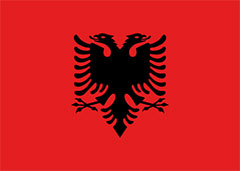
The Clean Energy Solutions Center responded to a request from the Regional Center of Expertise (RCE) on Education for Sustainable Development Albania, which promotes a new model of governance by coordinating different types of organizations in equal partnerships to foster sustainable regional development. RCE Albania works with local governments, non-governmental organizations, businesses and academia, focusing on sustainable architecture and green building, capacity building, and other areas related to sustainable development.
The Solutions Center produced a residential energy efficiency retrofit guide for RCE Albania, which included two case studies of whole-building retrofits in Europe for single and multi-family homes to demonstrate what could be achieved through energy efficiency retrofit projects throughout Albania.
Impact of Assistance
The assistance provided to Albania by the Clean Energy Solutions Center will help the country become more energy efficient, particularly in the residential sector. Energy efficiency is considered to be the most cost-effective strategy for emissions reductions. Albania’s current National Energy Efficiency Action Plan has established a target of a 9% reduction in energy use by 2018. This is well below the European Union’s mandated 20% reduction in energy use by 2020 for its member states, which Albania considers important because it has applied for EU member status.
Albania has taken important steps toward achieving these reductions by requiring energy efficiency standards for new construction. Law No. 8937 defined minimal thermal efficiency standards for new construction, and Law No. 10113 mandates compliance with energy efficiency standards. Albania is working towards the development and passage of an updated Law on Energy Efficiency, which will build a framework for enforcement and implementation of national energy efficiency priorities that have previously remained unenforced.
However, substantial opportunities for achieving energy reductions and cost savings still remain for existing buildings, particularly in the residential sector. To achieve national targets, a 22% reduction in residential energy use will be required by 2018. Data from Albania’s National Energy Efficiency Plan show that residential usage is driven by electricity, which is being increasingly used for heating in urban areas. According the International Energy Agency, the residential sector represented the highest energy consumption for electricity and heat in Albania in 2011.
The Solutions Center produced a guide for residential energy efficiency retrofits that supports Albania’s Energy Chapter of the Education for Sustainable Development (ESD) strategy, which recognizes education as an important tool for achieving sustainable development.
The Residential Energy Efficiency Guide was presented at a roundtable forum 26 June 2014 in Albania. Discussions at the meeting included legal aspects and framework, architecture and design, certification and auditing, country-specific conditions, pilot projects in the field, and consumer perspectives. The results of this meeting will be part of the energy chapter of Albania’s “Action Plan on Education for Sustainable Development for Albania."
